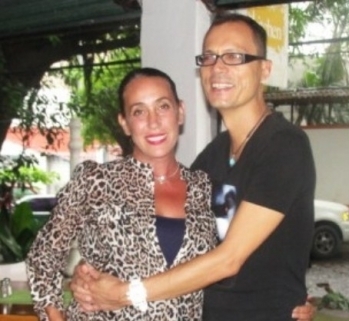
When I was eight years old, I boarded a flight to Toronto, Ontario with my mother, two sisters and little brother, at Puerto Vallarta, Jalisco. I remember wondering as the plane took off if I would ever see Vallarta again.
As it turned out, I would see Vallarta again the following summer. My mother, my hero and idol, bought all four of us plane tickets to come down and spend the summer at my dad’s house. She wanted us to have a father, even if he was a terrible one. She did not want us to have to take sides (I had already chosen her, anyway).
I loved the primary school that it was our fate to attend, except for the fact that that winter, there was an outbreak of lice at the school, and my sister, my brother and I were singled-out as the source of the epidemic, because we had just arrived from Mexico. Never mind that we had spent the summer on my mother’s best friend’s farm, and that neither she, her husband or any other member of their family had got lice. It would not be until I was a teenager that I learned the word “racism.”
At university, I was completely unprepared to face discrimination. Throughout the rest of my life in Canada, I had been accepted by virtually everyone as good-looking, smart and generally an O.K. guy, a little strange, perhaps, but harmless. In high school, the jocks had tentatively been homophobic to me, but lost interest when I did not give them the satisfaction of reacting, and also because I had more beautiful girlfriends than they could ever hope to have in a single lifetime. The most racist thing I had ever been called was a ‘taco.’
At university, I instantly became friends with people of color. Eventually I would discover that the University of Guelph had a ratio of 1:10 people of color to white. Before long, I had joined the Anti-Racist Committee, Guelph Queer Equality, CFRU Student Radio, and I was writing for the Ontarion, the university newspaper.
In class I found that if I ever spoke from the perspective of a Mexican man, or that of a gay man, other students or even the professor would complain that I was veering away from the topic at hand, as though what I had brought up from a different point of view was irrelevant, because no one else could relate to my experience.
I was majoring in Political Studies, and my favorite professor in that program was originally from China, by way of Princeton. She taught me Postmodernism, Hannah Arendt and Michel Foucault. I tried to combine my studies with my activism, and at the end of three years, it all got to be too much. I went to spend the weekend with my brother in Toronto, and I ended up having something very close to a nervous breakdown.
I decided I had to get out. As far as I knew, I had eight years to finish my degree. I was sick of Canada and identity politics (the politic in which the personal is political), and how certain allies within the activist movements on campus suddenly became my bitter enemies, and how enemies became friends. I knew I had to come back to Puerto Vallarta where I could just be me, and not some composite of disparate identities, or a man with many masks (to paraphrase Octavio Paz).
Within two weeks, I had packed everything, given everything I then owned to my friends, and I was back in Mexico. Back in gloriously beautiful Vallarta, where my family and friends were too busy enjoying life to worry about their political identities, and too busy being themselves; as whole, integrated persons, exactly what I wanted to be. Again.
Sure, here in Mexico people have a tendency to call a spade a spade; say, if you’re overweight, they’ll call you GORDA (fat) to your face. If you’re black, they’ll call you NEGRITO, which they will swear they mean ‘affectionately. Generally, the terms by which they’ll address you, especially if they do it right in front of you, without any kind of apprehension, is not loaded or intended to be discriminatory. That’s because Mexicans in general are not obsessed with language, like English-speakers. They believe in other kinds of language and prioritize them. One thing that would be useful to them in dealing with language-sensitive foreigners, or neighbors even, is to be able to differentiate the ‘intent’ behind their name-calling, and its ‘effect’ on the person that they’re attaching the name to.
While I may be Mexican Again, there is no denying that I have been industrialized.
Written by Alex Gomez for Caras de México. Click here to read more articles examining Mexican identity.